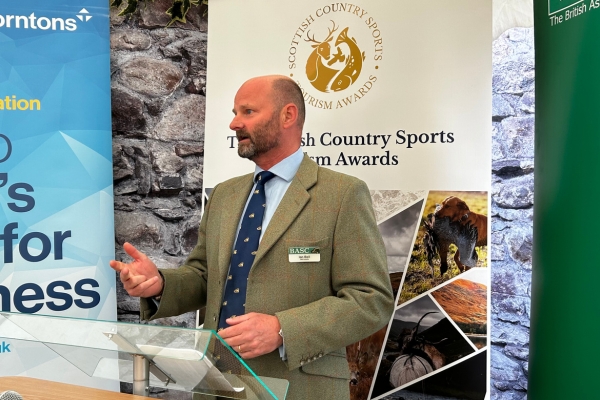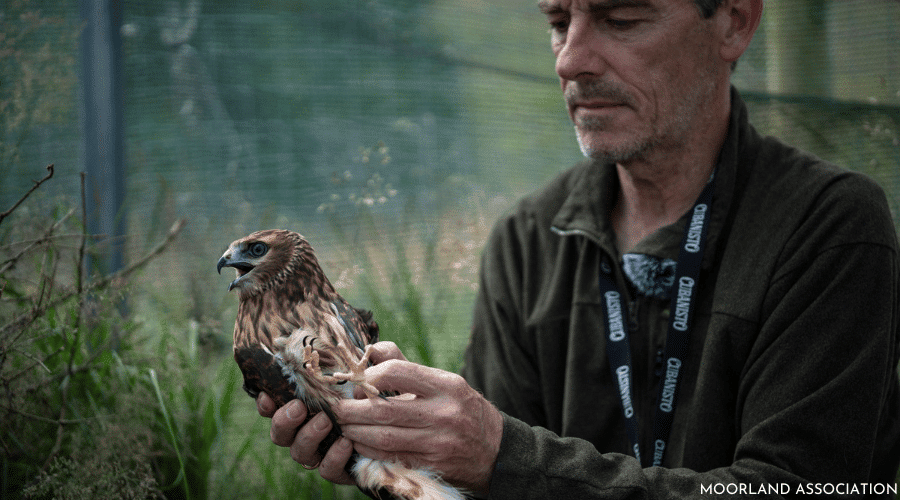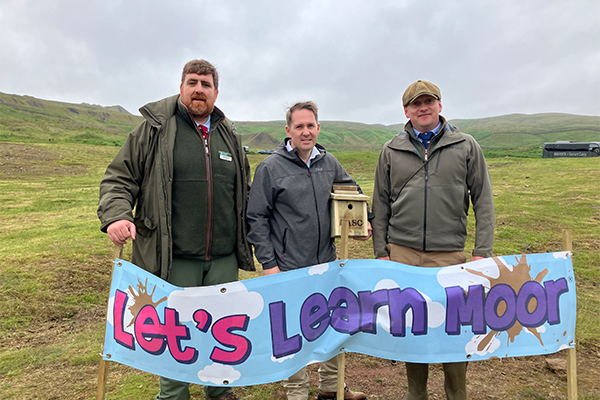
Excellence recognised at Scottish Country Sports Tourism Awards 2025
Scotland’s country sports tourism sector was celebrated in style at the 2025 Scottish Country Sports Tourism Awards.
Get information on the legal shooting season for mammals and birds in the UK.
Apply for funding for your project or make a donation today
Comprehensive information and advice from our specialist firearms team.
Everything you need to know about shotgun, rifle and airgun ammunition.
Find our up-to-date information, advice and links to government resources.
Everything you need to know on firearms law and licensing.
All the latest news and advice on general licences and how they affect you.

The pioneering brood management trial set up to help rebuild the population of the endangered hen harrier in England has reared and released 13 chicks this year.
The brood management trial first took place in 2018 and has seen 34 chicks from nine broods take to the wing in total over five years. Five of the brood managed birds have gone on to breed in the wild, adding 17 chicks to the wild hen harrier population.
The trial has been part funded by the Wildlife Habitat Charitable Trust through a conservation grant.
Hen harrier numbers have shown continuous improvement over the past six years, coinciding with the introduction of the government-led hen harrier recovery plan in 2016, to which BASC awarded £75,000 of Legacy funding earlier this year, to be paid over three years.
Watch the brood management scheme in action at estates in Yorkshire and Cumbria which have been participating in the trial here:
The brood management trial aims to understand if it is possible to rear hen harriers in captivity and then release them to become successful breeding adults in the English uplands. It also investigates the effects of this technique on the perceptions and behaviour of the moorland community.
The trial involves eggs and chicks from wild nests being reared for a few weeks at a specialist bird of prey centre. They are then transported to pens on grouse moors where they are tagged and monitored before being released into the wild, back into the same general areas that they came from.
The trial is conducted under strict licence conditions overseen by Natural England, a project board and Scientific Advisory Group. It is one of a suite of actions set out in the Hen Harrier Joint Action Plan, which also includes direct work to tackle persecution.
Jemima Parry-Jones, chief executive of the International Bird of Prey Centre, Gloucester, said: “When I first heard of the brood management scheme, I was sceptical about if and how it would work but I am so happy to see that, year after year, it has delivered, taught us a great deal and given hen harrier chicks the best possible start to their lives.”
Amanda Anderson, director of the Moorland Association, said: “Everyone involved in the trial has worked hard over the last five years. We have seen some incredibly encouraging results and this will give scientists plenty of evidence as they consider what next steps should be taken. All credit to estates and gamekeepers for stepping up and participating in the trial as part of their commitment to help rebuilding the harrier population.”
Natural England first granted a licence for the trial in 2018 and this was renewed in 2020 for a two-year period and a licence for a fifth year was granted in 2022.
Last year trial interventions were approved at two nests: one in North Yorkshire and one in Lancashire. All eight chicks from these nests were successfully reared to become healthy fledglings and released.
Monitoring of the fortunes of the 2020 cohort of brood-managed birds showed six of the eight fledged survived their first winter, and five attempted to breed last year, of which four were successful. One chick died before fledging due to terrible weather conditions.
None of the five chicks in the first year were thought to have survived their first winter in the wild but that may also be partly due to suboptimal tags.
The survival rate for the rest of the years – different tags were used, and all are still functioning – has been exceptional at 75% or more. Young hen harriers are vulnerable to other predators, disease, starvation and extreme weather and often suffer a high mortality rate.
John Holmes, Strategy Director, Natural England said: “We are pleased to support the successful rearing and release of 13 hen harriers in 2022 and look forward to following their fortunes through state-of-the-art satellite tracking technology. Thanks to these trackers, we know that birds reared in previous years have survived and successfully reared young themselves, contributing to the welcome increase in hen harrier nesting attempts that we are starting to see.”
“We will be even more confident of a sustained recovery when the hen harrier population is not limited by illegal persecution and this trial is gathering valuable insights into survival rates and causes of any deaths.”

Scotland’s country sports tourism sector was celebrated in style at the 2025 Scottish Country Sports Tourism Awards.

Sam Rushworth MP visited Let’s Learn Moor 2025 ahead of his speech at this week’s grouse debate.

This year’s BASC Wildlife Fund stamp, titled Pintail over Wentloog, celebrates an important coastal habitat restoration project in South Wales.
Sign up to our weekly newsletter and get all the latest updates straight to your inbox.
© 2025 British Association for Shooting and Conservation. Registered Office: Marford Mill, Rossett, Wrexham, LL12 0HL – Registered Society No: 28488R. BASC is a trading name of the British Association for Shooting and Conservation Limited which is authorised and regulated by the Financial Conduct Authority (FCA) under firm reference number 311937.
BASC Direct Ltd is an Introducer Appointed Representative of Agria Pet Insurance Ltd who administer the insurance and is authorised and regulated by the Financial Conduct Authority, Financial Services Register Number 496160. Agria Pet Insurance is registered and incorporated in England and Wales with registered number 04258783. Registered office: First Floor, Blue Leanie, Walton Street, Aylesbury, Buckinghamshire, HP21 7QW. Agria insurance policies are underwritten by Agria Försäkring.
If you have any questions or complaints about your BASC membership insurance cover, please email us. More information about resolving complaints can be found on the FCA website or on the EU ODR platform.